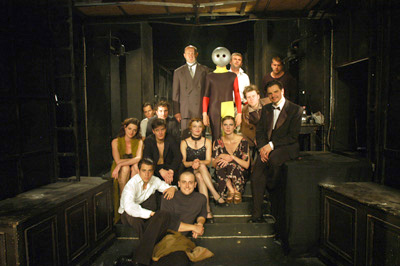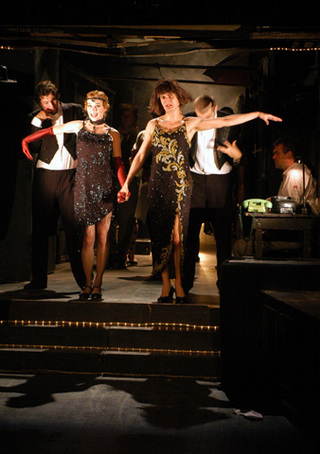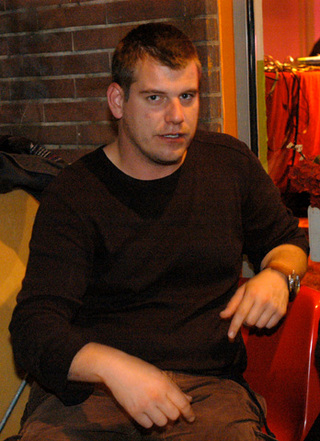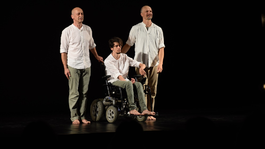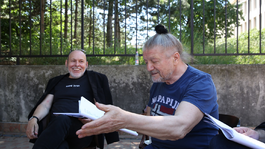Sticking out his tongue, he invites me behind the wings with an unmistakable intention. He persists even when I shake my head in embarrassment. From behind the slightly open door, he mimes to me that I could as well poke the person sitting next to me and send him over. Meanwhile, the performance goes on.
|
|
|
How much does the German audience understand of all this? Everything. Even what they don’t. (The words are often just as incomprehensible for the Hungarian audience. Purposely.) It is all so made-of-theatre that, even without the German subtitles, they can understand every instance of the humour: the tragedy and the grandiose genre picture of being hamstrung, drowned into scenes jeopardous to self and public.
The title taken from the folk art genre of graffiti (Gehacktundverschwunden in the language of the host country) is a precursor of the fulfilment of József K.’s sad fate. Tamás Keresztes ‘grew up’ in the role: in 2005, in addition to a number of other awards granted for the performance, his acting was rewarded with the prize for the season’s best actor under 30, immediately followed by the award for the most promising actor at the beginning of his career, and one year later, in Torun, Poland, by the prize for the best (adult) actor.
|
He is the one who triggered this hazardous parade of inspiration, he is its sufferer and its most productive source of humour. Amidst the concussions survived with solemn gravity, he leavers room for the other fourteen players, who present us with their whole arsenal of skills, and bring to life the furious accusation of the Kafka-Vinnai-Bodó triad with resolute creativity from one performance to the next. The actors take part in shaping the text from the very beginning, and the obligate exchange of characters entails major changes in the sentences themselves, and, for that matter, the same thing happens without the exchange. Scenes come and scenes go, beautiful girls in beautiful costumes do it with their whole heart, dopey or power-thirsty men torment and get tormented, but the essence is unchanged. This is the reason for the loud bravos and gratitude in Berlin. (Ledarálnakeltűntem has been invited to the BITEF as well as to Tokyo and New York for next season.)
At the time of the the guest performance of the Katona József Theatre, the most highly rated theatrical festival, the Theatertreffen is on in Berlin. This year’s festival has been referred to as TT07.
|
Author: Katalin Kállai
Foto: Zsuzsa Szkárossy
Viktor Bodó, director

